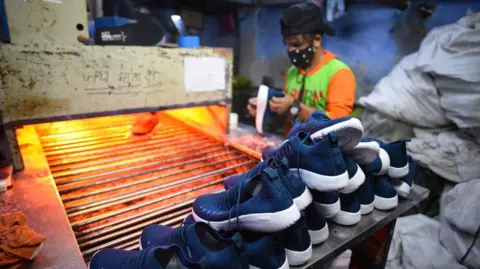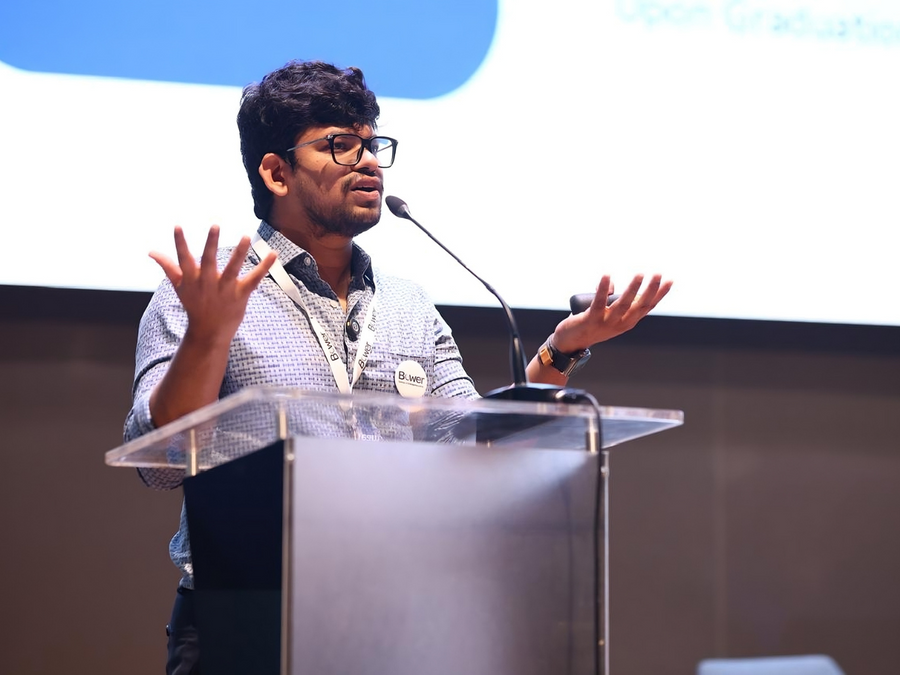“`html
Global Sneaker Giants Eye India as the Next Manufacturing Mecca
Published
While many Americans might be unfamiliar with the name Hong Fu Industrial Group,chances are they’ve encountered its products daily. This Taiwanese behemoth stands as the world’s second-largest sneaker manufacturer, quietly crafting footwear for industry titans like Nike, Converse, Adidas, adn Puma, churning out approximately 200 million pairs annually.
Hong Fu’s recent strategic investment in India’s burgeoning market has sent ripples throughout the footwear industry, signaling a meaningful shift in global manufacturing dynamics.
Hong Fu’s Mega-Plant in Tamil Nadu: A Game Changer?
Hong Fu is currently constructing a sprawling manufacturing plant in panapakkam, Tamil Nadu, in southeastern India. This enterprising project, slated for full operation within the next three to five years, aims to produce 25 million pairs of shoes each year and provide employment for about 25,000 workers.
The project also involves Indian partners, including Aqeel Panaruna, chairman of Florence shoe Company. According to Panaruna, “The international market is saturated and they [Hong Fu] were looking for a new market.” He further emphasized, “There is a drastic increase in non-leather footwear in India. It has huge potential.”
The international market is saturated and they [Hong Fu] were looking for a new market.
Aqeel Panaruna, chairman of Florence Shoe Company
This expansion reflects a broader trend of multinational corporations seeking new growth opportunities in emerging markets like India, drawn by the promise of lower labor costs and a rapidly expanding consumer base, much like the shift of apparel manufacturing to Southeast Asia in the late 20th century.
India’s Push for Quality and Standards
The Indian government is actively courting investments like Hong Fu’s, viewing them as catalysts for raising standards within the domestic footwear industry and boosting exports. In August, the Bureau of Indian Standards (BIS) implemented new quality regulations for all shoes sold in India, mandating that materials undergo rigorous tests for strength and adaptability.
Sandeep Sharma, a journalist and footwear industry expert, explains, “These BIS standards are really about cleaning up the market. We’ve had too many low-quality products flooding in, and consumers deserve better.”
These BIS standards are really about cleaning up the market. we’ve had too many low-quality products flooding in, and consumers deserve better.
Sandeep Sharma, journalist and footwear industry expert
These standards mirror similar consumer protection measures in the U.S., ensuring that products meet minimum safety and durability requirements. The BIS standards could potentially level the playing field, pushing smaller manufacturers to invest in better materials and production processes, benefiting consumers in the long run.
The Unorganized Sector: A Double-Edged Sword
Despite the allure of branded footwear, a considerable portion of the Indian population relies on affordable options produced by a vast network of small-scale shoe manufacturers, frequently enough referred to as the unorganized sector. These manufacturers account for an estimated two-thirds of the total footwear market.
Ashok, who withheld his full name, operates several shoe-making units in Agra, northern India, and estimates that around 200,000 pairs of shoes are produced daily in the city through operations like his. “Many consumers, especially in rural and lower-income urban areas, opt for cheaper local footwear instead of branded options,” Ashok says. “Many organised brands struggle to expand their retail footprint in semi-urban and rural areas because we cater to them.”
Many consumers, especially in rural and lower-income urban areas, opt for cheaper local footwear instead of branded options… Many organised brands struggle to expand their retail footprint in semi-urban and rural areas because we cater to them.
Ashok, shoe manufacturer in Agra
The challenge lies in integrating this unorganized sector into the formal economy without disrupting livelihoods. Sharma notes, “I think the government is trying to walk a tightrope here. They can’t just shut down thousands of small businesses that employ millions of people – that would be economic suicide.”
I think the government is trying to walk a tightrope here. They can’t just shut down thousands of small businesses that employ millions of people – that would be economic suicide.
Sandeep Sharma, journalist and footwear industry expert
He adds, “What I’m seeing is more of a carrot-and-stick approach. They’re pushing for standards, but also rolling out programs to help small manufacturers upgrade their processes. It’s not about wiping out the unorganised sector but gradually bringing them into the fold.”
What I’m seeing is more of a carrot-and-stick approach.They’re pushing for standards, but also rolling out programs to help small manufacturers upgrade their processes.It’s not about wiping out the unorganised sector but gradually bringing them into the fold.
Sandeep sharma, journalist and footwear industry expert
This approach mirrors efforts in the U.S.to support small businesses through initiatives like Small Buisness Administration (SBA) loans and grants, designed to help them modernize and compete in a globalized market.
The Counterfeit Conundrum
A significant complication arises from the unorganized sector’s reputation for producing counterfeit shoes of major brands. While these knock-offs are popular among Indian consumers seeking affordable style, they have drawn criticism from other countries due to the financial losses incurred by legitimate brands. The U.S. Trade Representative has,in the past,raised concerns about India’s role in the global trade of counterfeit goods.
The Rise of Homegrown Innovators
Amidst the global giants and the unorganized sector, a new wave of Indian trainer-makers is emerging, targeting the country’s expanding middle class. Sabhib Agrawal, of Zen barefoot, is trying to promote barefoot footwear, emphasizing its health benefits and natural movement. Agrawal believes his company is unique in an industry that frequently enough lacks innovation. “There are very few people who are ready to take time and invest in new technologies here. Indian manufacturing is a very profit- first market, ROI [return on investment] driven.”
There are very few people who are ready to take time and invest in new technologies here.Indian manufacturing is a very profit- first market, ROI [return on investment] driven.
Sabhib Agrawal, Zen Barefoot
He adds, “And in a lot of cases, even the government is not ready to enable these industries through grants or tax relief, which makes it quite arduous.”
and in a lot of cases,even the government is not ready to enable these industries through grants or








